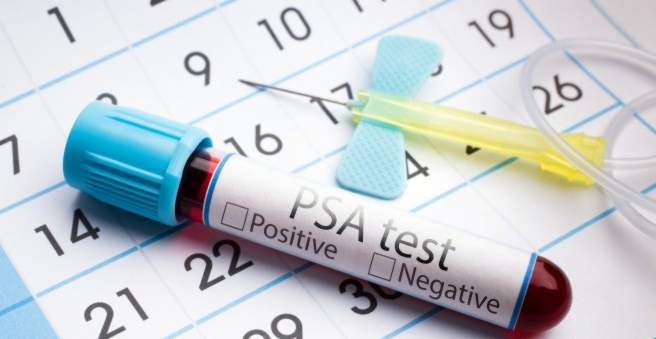PSA was discovered in the US just over 40 years ago as a measure of prostate tissue activity. Prostate Specific Antigen (PSA) is a protein that is exclusively produced by prostate cells. It can be measured in the blood (PSA test). The PSA value is determined for the follow-up assessment of prostate cancer. Whether it is also suitable for the early detection of cancer is discussed controversially. In Germany, the statutory health insurance pay the PSA test for early detection (PSA screening) currently not. Find out everything worth knowing about the PSA value here.

What is the PSA value?
PSA is an abbreviation for “prostate-specific antigen”. This is a protein that is only produced by the prostate. It makes the seminal fluid thinner.
The PSA test measures how much PSA circulates in the blood. Experts have defined an age-dependent PSA standard value, which serves only as a guide. It is impossible to give a general threshold for PSA levels in healthy men. In general, however: In prostate cancer (prostate cancer), PSA levels are often significantly higher than the reference levels mentioned here and continue to increase with tumor growth.
|
Age |
PSA normal range |
|
up to 40 years |
<1.4 μg / l |
|
up to 50 years |
<2.0 μg / l |
|
up to 60 years |
<3.1 μg / l |
|
up to 70 years |
<4.1 μg / l |
|
over 70 years |
<4.4 μg / l |
Attention: Increased PSA does not necessarily mean the person has prostate cancer. Conversely, a prostate carcinoma can not be safely excluded even with normal PSA value.
For example, elevated PSA may also be due to benign enlargement of the prostate (BPH, benign prostatic hyperplasia), urinary or prostate inflammation, or prostate infarction. In addition, the PSA level usually increases with age.
On the other hand, a low (normal) PSA level is no sure proof that there is no prostate cancer. The sole measurement of the PSA value is therefore not suitable for diagnosing or excluding prostate cancer beyond doubt.
PSA value for early detection of prostate cancer
It is still unclear what significance the PSA value actually has in the early detection of prostate cancer. Since the introduction of PSA measurement, prostate cancer has been detected much more frequently and earlier. But only a few of the sick men would actually get health complaints or even die from the discovered prostate cancer. In many cases, prostate cancer grows very slowly and would therefore only lead to discomfort after years or even decades (clinically silent / latent prostate cancer).
The diagnosis of prostate cancer, however, makes most people very afraid and is therefore extremely stressful. In addition, many men undergo the diagnosis of a treatment that is often associated with side effects such as urinary incontinence or impotence. Considering that only a minority of prostate carcinoma would have really made complaints, it becomes clear that many men are unnecessarily confronted with the onerous diagnosis of prostate cancer and treatment would often be unnecessary.
Conclusion: It is highly controversial among experts, whether the PSA value for the early detection of prostate cancer harms or benefits more.
PSA measurement for follow-up
On the other hand, it is undisputed that the measurement of the PSA value after prostate cancer treatment makes sense. For example, during the operation, the entire prostate is removed along with the surrounding tissue. Within a few weeks, the PSA level in the blood drops to undetectable levels (below 0.2 nanograms per milliliter of blood).
If a PSA in the blood is suddenly measured again in a follow-up examination, this may indicate a return of the cancer (recurrence): In the area of the operation area or in other places in the body again cancer cells could spread. By means of a PSA test, a recurrence can be detected and treated early.
Early detection of prostate cancer: conclusion
An important component of the early detection of prostate cancer is the Palpation on the anus: Using a finger, the doctor scans the prostate via the rectum for abnormal changes. This digital-rectal examination is paid to all men over the age of 45 years once a year by the statutory health insurance. However, it alone can only reveal prostate cancer at an advanced stage.
In order to detect the malignant tumor earlier, men are therefore often offered further examinations (at their own expense): one Ultrasound examination of the rectum (rectal ultrasound) and the PSA test, As mentioned above, the importance of PSA levels in the early detection of prostate cancer is controversial. There is no valid recommendation for all men.
The German Cancer Aid therefore advises all men to be advised by a doctor about the various investigations. In individual cases, man and doctor should then decide together, whether the PSA level should be determined in the context of prostate cancer screening.